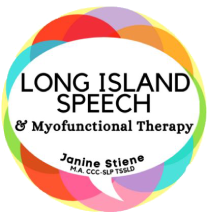Blog
What is Auditory Processing Disorder?
Hey Everyone!
Recently, there has been a lot of discussion about Auditory Processing Disorder (APD), also known as Central Auditory Processing Disorder (CAPD). I would like to give you some quick information about what CAPD is, how it is treated, and some signs that your child may have an auditory processing deficit.
What is Auditory Processing Disorder?
Auditory Processing Disorder is a defect in the way the brain processes spoken language. Specifically, it inhibits an individual’s ability to attend, understand and remember. This involves difficulty in perceiving, recalling, understanding and utilizing auditory information presented. It is important to note, that this is NOT a hearing deficit. Typically, Children who have auditory processing disorders have normal hearing.
How is Auditory Processing Disorder treated?
There is no one way to treat APD, as we no every child is different and deficits may present themselves in different ways. Often treatment involves three components:
- Changing the environment– utilizing electronic listening devices, teacher changes to improve delivery of information, decreasing proximity from a child and listener.
- Compensatory Strategies -utilizing other cognitive, language, or memory skills in order to help improve their performance.
- Remediation via Therapy-. one-on-one therapy that directly targets improving processing skills (i.e identifying and manipulating sounds and improving listening and conversation skills).
What are the signs/symptoms of APD?
Children may present with some of the following:
- Difficulty following directions
- Inability to attend for long periods of time
- Difficulty with rhymes or songs
- Difficulty following a conversation
- Difficulty remembering details
- Struggle with math word problems
- Easily distracted by noise or things around them
- Difficulty with reading and/or spelling
- Difficulty telling stories
- May drop ends of sounds when speaking
- Say “what” or “ huh” often
Most often APD is diagnosed after age 6. If you suspect that your child may have a deficit in auditory processing, contact a speech-language pathologist to determine if services are warranted. As with all speech, language and hearing deficits early detection and intervention is key!




